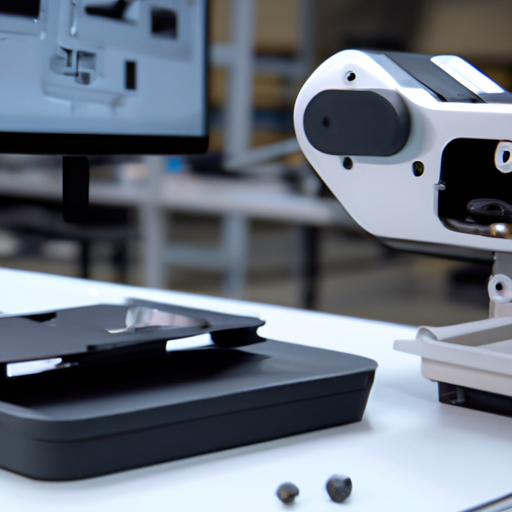
Are you ready to revolutionize the world of manufacturing? It’s time to unlock the full potential of your production processes with the power of AI and automation. In today’s fast-paced and competitive market, optimizing manufacturing processes is crucial for staying ahead of the curve. With the advancements in technology, AI and automation have emerged as game-changers, offering unprecedented efficiency, accuracy, and productivity. So, let’s dive into the world of optimizing manufacturing processes with AI and automation and explore how these cutting-edge technologies can transform your operations.
In the realm of manufacturing, efficiency is key. Every second, every minute counts. That’s where AI and automation come into play. By harnessing the power of artificial intelligence, you can streamline your manufacturing processes, eliminating inefficiencies, reducing costs, and maximizing output. AI algorithms can analyze vast amounts of data in real-time, identifying patterns, predicting maintenance needs, and optimizing workflow. From predictive maintenance to quality control, AI can revolutionize every aspect of your manufacturing operations.
But AI alone is not enough. To truly optimize your manufacturing processes, you need to embrace automation. Automation technologies, such as robotic process automation (RPA), can take over repetitive and mundane tasks, freeing up your workforce to focus on more value-added activities. From assembly lines to inventory management, automation can enhance productivity and accuracy, ensuring that your operations run like a well-oiled machine. So, say goodbye to manual errors and hello to precision and efficiency.
In conclusion, optimizing manufacturing processes with AI and automation is the way of the future. By integrating these technologies into your operations, you can achieve unmatched efficiency, productivity, and cost savings. So, don’t get left behind in this digital age. Embrace the power of AI and automation and unlock the true potential of your manufacturing processes. Get ready to take your operations to new heights and stay ahead in the ever-evolving world of manufacturing.
Optimizing manufacturing processes with AI and automation can significantly enhance productivity and efficiency in the industry. By integrating artificial intelligence technology and automated systems, manufacturers can streamline operations, reduce errors, and improve product quality.
AI-powered machines can analyze large volumes of data in real-time, identifying patterns and making predictive insights to optimize production schedules and resource allocation. Automation systems can handle repetitive tasks with precision and speed, freeing up human workers to focus on more complex and creative endeavors.
This combination of AI and automation not only boosts productivity but also helps manufacturers minimize costs, reduce waste, and increase overall competitiveness in the market. Embracing these technologies can revolutionize the manufacturing industry and pave the way for a more efficient and sustainable future.
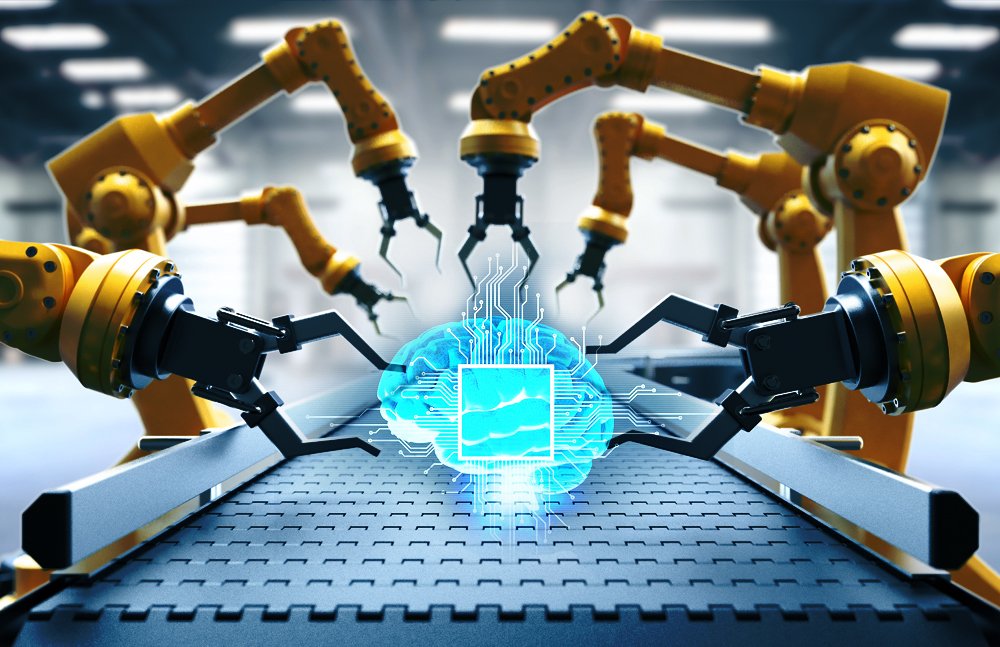
Optimizing Manufacturing Processes with AI and Automation
Manufacturing processes have come a long way in recent years, thanks to advancements in technology. One of the most exciting developments in this field is the use of artificial intelligence (AI) and automation. These technologies have the potential to revolutionize the way products are made, improving efficiency, reducing costs, and increasing productivity. In this article, we will explore how AI and automation can optimize manufacturing processes and the benefits they bring.
The Role of AI in Manufacturing Processes
AI is being used in manufacturing processes to streamline operations and make them more efficient. One of the key applications of AI in manufacturing is predictive maintenance. By analyzing data from sensors and machines, AI algorithms can identify patterns and predict when equipment is likely to fail. This allows manufacturers to schedule maintenance proactively, reducing unplanned downtime and maximizing productivity.
Another way AI is being used is in quality control. AI algorithms can analyze images and detect defects in products, allowing for real-time quality control. This not only improves the overall quality of the products but also reduces the need for manual inspections, saving time and resources.
Benefits of AI in Manufacturing Processes
The use of AI in manufacturing processes offers several benefits. Firstly, it improves efficiency by optimizing production schedules and reducing downtime. By predicting equipment failures and scheduling maintenance in advance, manufacturers can minimize disruptions and keep production running smoothly.
Secondly, AI improves product quality. By analyzing data and detecting defects in real-time, manufacturers can catch issues early on and prevent faulty products from reaching the market. This helps build customer trust and reduces the cost of warranty claims and returns.
Furthermore, AI enables manufacturers to make data-driven decisions. By analyzing large amounts of data, AI algorithms can identify trends and patterns that humans may miss. This allows manufacturers to optimize processes, reduce waste, and improve overall performance.
In conclusion, the use of AI in manufacturing processes brings numerous benefits, from improved efficiency and product quality to data-driven decision-making. By harnessing the power of AI, manufacturers can optimize their operations and stay ahead in today’s competitive market.
The Role of Automation in Manufacturing Processes
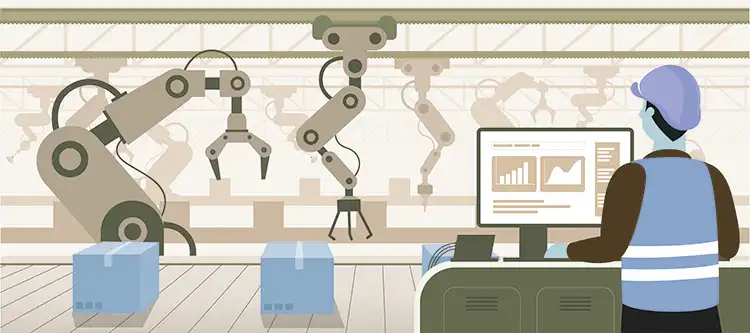
Automation is another technology that is transforming manufacturing processes. By replacing manual tasks with automated systems, manufacturers can increase productivity, reduce errors, and improve safety. Automation can be applied to various aspects of the manufacturing process, from assembly and packaging to material handling and logistics.
Benefits of Automation in Manufacturing Processes
The benefits of automation in manufacturing processes are manifold. Firstly, it increases productivity by eliminating the need for manual labor in repetitive tasks. Automated systems can work continuously without breaks, leading to higher output and faster production times.
Secondly, automation improves accuracy and reduces errors. Automated systems are programmed to perform tasks with precision, minimizing the risk of human error. This results in higher product quality and fewer defects.
Furthermore, automation enhances safety in the manufacturing environment. By taking over hazardous or physically demanding tasks, automated systems protect workers from potential injuries. This creates a safer workplace and reduces the risk of accidents.
In addition, automation improves cost-effectiveness. While the initial investment in automation systems may be high, they can lead to long-term cost savings. Automated systems can operate at a lower per-unit cost compared to manual labor, reducing overall production costs.
To summarize, automation plays a crucial role in optimizing manufacturing processes by increasing productivity, improving accuracy, enhancing safety, and reducing costs. By embracing automation, manufacturers can achieve greater efficiency and competitiveness in the market.
The Future of Manufacturing with AI and Automation
The future of manufacturing is undoubtedly intertwined with AI and automation. As technology continues to advance, we can expect even more innovative solutions to optimize manufacturing processes. From collaborative robots that work alongside humans to AI-powered supply chain management systems, the possibilities are endless.
The integration of AI and automation will enable manufacturers to create smart factories where machines and systems communicate and collaborate seamlessly. This will result in highly efficient and agile production processes, capable of adapting to changing market demands.
Moreover, the use of AI and automation will lead to the development of new and exciting products. By leveraging AI algorithms and automated systems, manufacturers can explore new design possibilities, improve customization options, and create innovative solutions that meet the evolving needs of consumers.
In conclusion, the combination of AI and automation holds great potential for optimizing manufacturing processes. By harnessing these technologies, manufacturers can achieve greater efficiency, improve product quality, and stay competitive in a rapidly evolving industry. The future of manufacturing is indeed exciting, and AI and automation are at the forefront of this transformation.
Key Takeaways: Optimizing Manufacturing Processes with AI and Automation
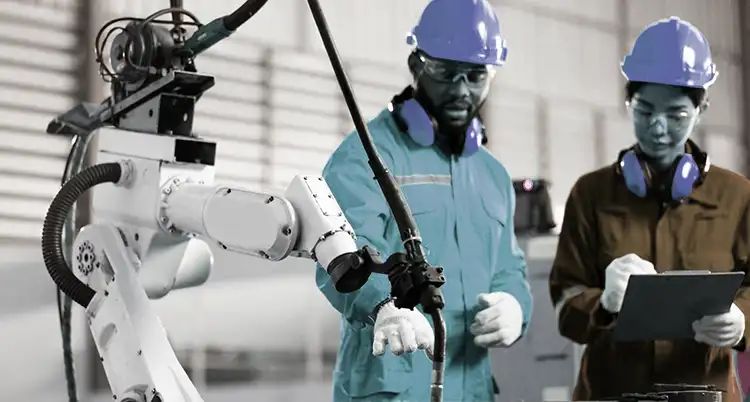
- AI and automation have revolutionized manufacturing processes, making them more efficient and cost-effective.
- By implementing AI and automation, manufacturers can reduce human error and improve overall product quality.
- AI-powered predictive maintenance can help identify potential issues before they cause costly disruptions in production.
- Automation allows for increased production speed and scalability, meeting customer demands more effectively.
- Optimizing manufacturing processes with AI and automation leads to increased productivity and profitability for businesses.
Frequently Asked Questions
How can AI and automation optimize manufacturing processes?
AI and automation have revolutionized the manufacturing industry by streamlining processes and improving efficiency. With AI, machines are able to analyze vast amounts of data and make intelligent decisions in real-time. Automation, on the other hand, eliminates manual tasks and replaces them with machines that can perform them faster and more accurately.
By combining AI and automation, manufacturers can achieve higher levels of productivity and quality. AI algorithms can analyze production data to identify bottlenecks and inefficiencies, enabling manufacturers to make data-driven decisions to optimize their processes. Automation can then be used to implement these optimizations, reducing human error and increasing throughput.
What are the benefits of optimizing manufacturing processes with AI and automation?
Optimizing manufacturing processes with AI and automation offers several benefits. Firstly, it increases productivity by reducing the time required to perform tasks and eliminating bottlenecks. This leads to higher throughput and faster production cycles.
Secondly, AI and automation improve quality control by minimizing human error. Machines can perform repetitive tasks with precision, ensuring consistent product quality. AI algorithms can also detect anomalies and deviations in production data, allowing manufacturers to identify and address quality issues in real-time.
Can AI and automation be implemented in all types of manufacturing processes?
AI and automation can be implemented in a wide range of manufacturing processes. From assembly lines to quality control, these technologies can be tailored to meet the specific needs of different industries and production environments.
However, it’s important to note that the level of implementation may vary depending on the complexity of the process and the availability of data. Some processes may require more advanced AI algorithms and specialized automation equipment, while others can benefit from simpler solutions.
What challenges may arise when implementing AI and automation in manufacturing processes?
Implementing AI and automation in manufacturing processes can come with a few challenges. One major challenge is the initial investment required to adopt these technologies. Purchasing AI software and automation equipment can be costly, especially for small and medium-sized manufacturers.
Another challenge is the need for skilled professionals to operate and maintain AI systems and automated machinery. Training employees to work with these technologies and keeping up with advancements in AI and automation can be a continuous effort.
What role does data play in optimizing manufacturing processes with AI and automation?
Data is a crucial component in optimizing manufacturing processes with AI and automation. AI algorithms rely on large datasets to make accurate predictions and decisions. The more data that is available, the better the algorithms can understand patterns, identify inefficiencies, and suggest optimizations.
Data also enables real-time monitoring and control of manufacturing processes. By collecting and analyzing data in real-time, manufacturers can quickly identify issues, make informed decisions, and implement necessary adjustments to improve efficiency and quality.
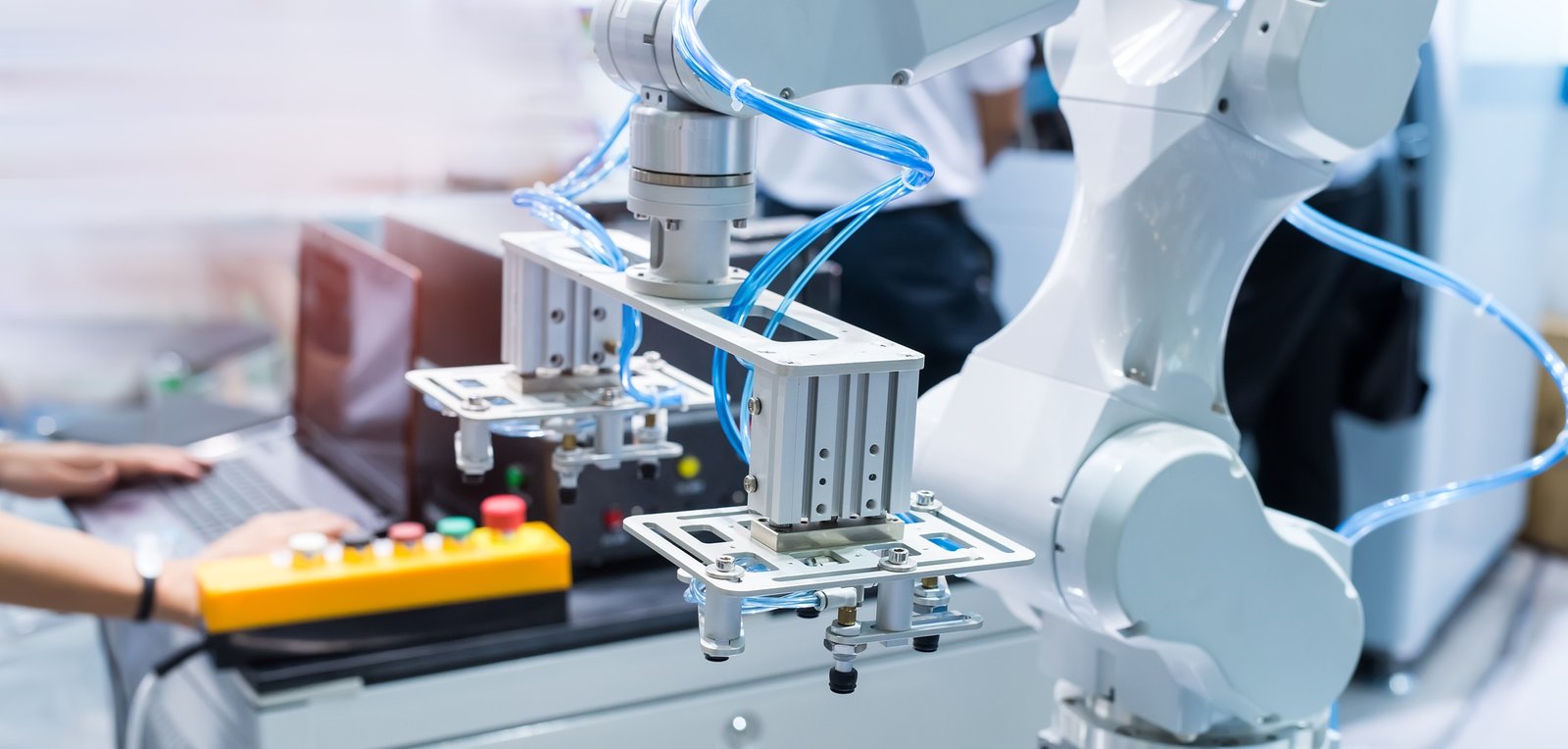
Conclusion: Streamlining Manufacturing Processes with AI and Automation
In a world where efficiency and productivity are paramount, it’s no wonder that manufacturers are turning to AI and automation to optimize their processes. The integration of these technologies has revolutionized the manufacturing industry, offering a multitude of benefits that range from increased productivity to reduced costs. By harnessing the power of artificial intelligence and automation, manufacturers can streamline their operations and stay ahead in an increasingly competitive market.
One of the key advantages of using AI and automation in manufacturing is the ability to improve accuracy and precision. Machines equipped with AI algorithms can perform complex tasks with incredible precision, minimizing errors and ensuring consistent quality. This not only leads to higher customer satisfaction but also reduces waste and rework, ultimately saving valuable time and resources. Additionally, automation allows manufacturers to automate repetitive and mundane tasks, freeing up human workers to focus on more complex and value-added activities. This not only boosts efficiency but also enhances job satisfaction and creativity among the workforce.
Furthermore, AI and automation enable manufacturers to gain valuable insights from data analytics, facilitating data-driven decision-making. By harnessing the power of big data, manufacturers can identify patterns and trends that would have otherwise gone unnoticed. This empowers them to optimize their processes, identify bottlenecks, and make proactive adjustments to improve overall efficiency. With AI-driven predictive maintenance, manufacturers can also detect potential equipment failures before they occur, minimizing downtime and maximizing productivity.
In conclusion, the integration of AI and automation in manufacturing processes offers numerous benefits, from improved accuracy and productivity to data-driven decision-making. By embracing these technologies, manufacturers can optimize their operations, reduce costs, and gain a competitive edge in the market. As the manufacturing industry continues to evolve, it is clear that AI and automation will play a pivotal role in shaping the future of manufacturing, revolutionizing the way we produce goods and driving us towards a more efficient and sustainable future.


